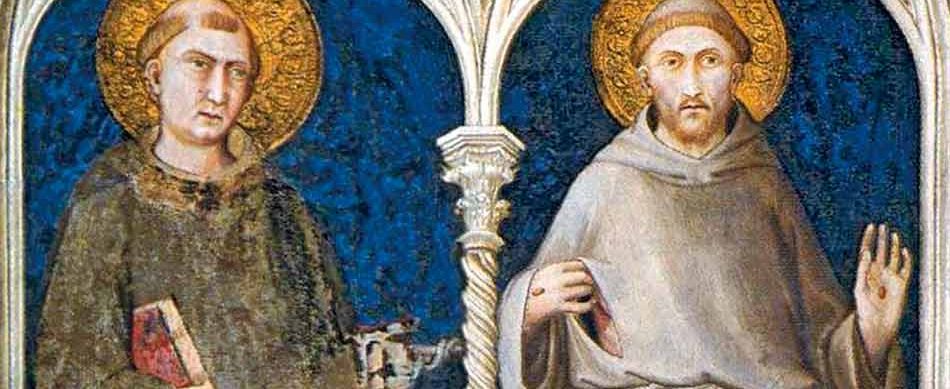IN 1181, at a time when the Church was going through one of its most difficult periods in its history, a sun was born: St Francis of Assisi. He was a sun of such strength that in only a few years he had gathered around himself an army of young men ready to give their own lives in the service of God and neighbor: the Friars Minor.
At this point a question comes spontaneously to mind, the same question that one of his dearest friends, Brother Leo, asked Francis himself, “Why is it that the whole world is following you?” Historians have written many books in an attempt to answer this question, but they all recognize that Francis was the saint who was able to understand the profound aspirations of the type of human being who was then emerging out of the shadows of the Middle Ages, and who would later be called “modern man.” Francis made people conscious of their profound need of simplicity and authenticity, and awakened within them the desire to be at one with God’s pure creation.
This wave of enthusiasm reached as far as Portugal, first Lisbon and then Coimbra, and this zeal animated a young man who had already chosen the religious life with the Regular Canons of Saint Augustine: Fernando de Bulhoes. That young man decided, in 1220, to change his religious order and become a Friar Minor – to become one of Francis’ sons and disciples. He even changed his name from Fernando, the noble, learned and respected Augustinian, to Anthony, a name taken from that of the small convent which housed the friars he had gotten to know.
Exactly 800 years have passed since Anthony took that important step. It was a decision that we will examine throughout the whole of this New Year thanks to Madeline Pecora-Nugent’s in-depth knowledge of Saint Anthony’s life, deeds and writings. Pecora-Nugent has been writing for us for many years now, and from this January 2020 issue she will initiate an 11-article series on page 12 of this magazine which will focus on those Franciscan values that Anthony gave flesh to during his earthly ministry.
I believe that Anthony, as a former Augustinian Canon, was especially struck by two great ideals he saw in the friars he had the opportunity to meet. First of all there was their evangelical life-style rooted in poverty and simplicity. Anthony was mesmerized by the way the friars lived with the poor and walked with them, trying to evangelize them through their example. Secondly, Anthony was struck by the missionary zeal which drove five of those friars even to die as martyrs in Morocco.
For Anthony, poverty meant to put oneself in God’s hands with complete trust. Like Francis, he believed in the love of poverty just as Jesus himself had been poor, and, like Francis, he wanted to live poverty with joy. But to this love of poverty, which Francis had handed down to him, Anthony added his own inflamed defense of the poor against tyrants, usurers, and all those who took advantage of the destitute. Throughout his life as a Franciscan, Anthony fought for what we today call “human rights.”
In asking to become a Friar Minor, Anthony had proposed one condition: the permission to go as a missionary to Morocco, but he fell ill on his journey and had to return. The Lord had other plans for him: to be a missionary in Christian lands, especially where heresy ruled. Therefore, following his heart, Anthony became a missionary in Italy and in the south of France.
His itinerant preaching was endless, as there was never enough time for him to listen to the confessions of those who had been won over by his words. He conquered unbelievers and heretics above all through the holiness of his life and his extensive knowledge of the Scriptures, and not through the threat of burning them at the stake or throwing them in jail.
St Francis had pointed out to his friars that the “Lord was sending them out to the whole world so that they could bear witness to His voice through word and deed.” Anthony felt that he had also been given this mission, and so throughout his life as a Franciscan friar he tried to spread the Creator’s love through his words and his example.
As you can see, Anthony was deeply Franciscan. He lived the Franciscan ideals with his own particular spiritual sensitivity, temperament and cultural background, always trying to be an outstanding witness of God’s never-ending love for all humanity. In the certainty of this love, let’s embrace the year that has just begun with a brighter and steadier light of faith. Happy New Year!




